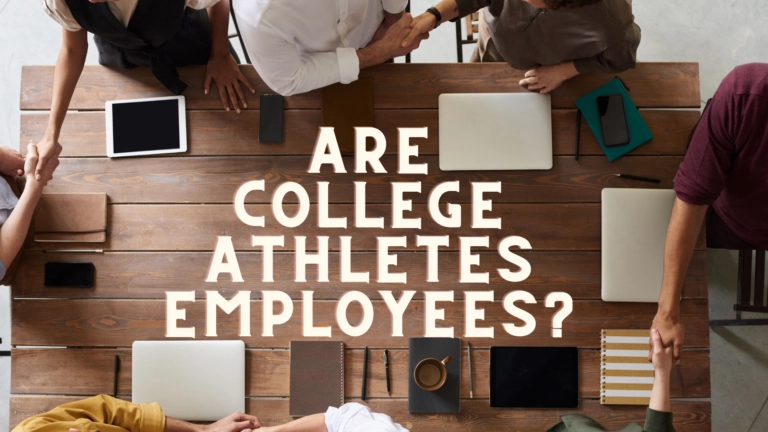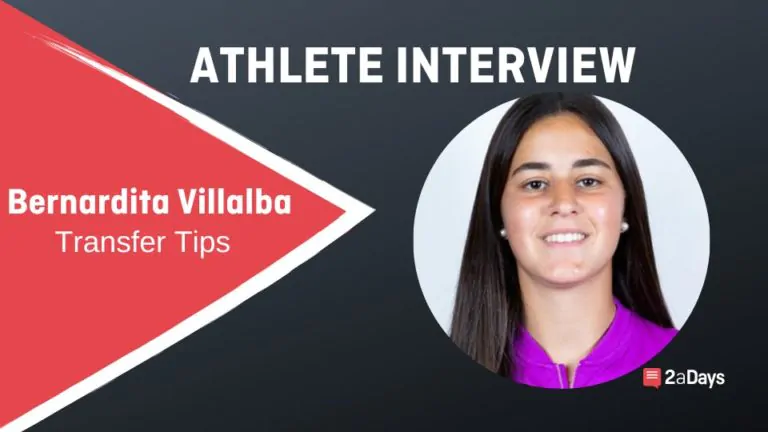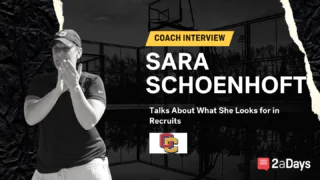For decades, the courts have been debating whether or not college athletes are employees. Yesterday, the National Labor Relations Board might have helped make a big decision about the workplace rights of college athletes.
Yesterday morning, NLRB general counsel, Jennifer Abruzzo, released a memo stating that college athletes should be classified as employees. The memo is significant because it cited the NCAA's recent Supreme Court loss as evidence that college athletes are revenue-generating workers, rather than simply students. This isn't the first announcement of its kind—the NLRB released similar memos in 2014 and 2017 with no real progress, but such statements have the potential to open doors to further conversations about athletes' rights. However, there are some catches that college athletes should be aware of.
Related: New NIL Bill Alert: Examining the Collegiate Athletic Compensation Rights Act
First, the NLRB's memo is just that: a memo. It's not a ruling and it may or may not reflect the viewpoints of the full board. That means that college athletes aren't employees yet, although that day may come sooner rather than later. For now, the relationships between college athletes and their coaches, conferences, athletic directors, and the NCAA remains unchanged.
It's also important to note that NLRB rulings, when they do come to fruition, only apply to private sector employees, and the majority of colleges in the U.S. fall under the public sector. This means that if a NLRB ruling is eventually passed, it won't apply to the majority of college athletes. The language of the memo might narrow this pool even further. The memo leaned heavily on the employment status of scholarship football players and “similarly situated Players at Academic Institutions” which begs several questions. Do non-revenue-generating scholarship athletes qualify? What about scholarship athletes in universities that don't generate revenue? Does this affect DII and DIII? Does Title IX come into play at all? The emphasis on scholarship athletes also might leave walk-on athletes out of the unionization conversation. Needless to say, a lot is still up in the air.
Related: The College Athlete Right to Organize Act
Perhaps most significant is Abruzzo's negative emphasis on the term “student athlete.” For those unfamiliar with college sports history, “student athlete” was coined in 1951 by Walter Byers, the NCAA's first executive director, in an attempt to argue that college athletes are students first, and therefore, not employees entitled to workplace benefits. A few years later, the term was put to the test and it succeeded in fulfilling its purpose.
In 1956, Fort Lewis A&M football player Ray Dennison died of a football-related head injury and shortly after, his widower, Billie, filed for death benefits. She was denied because Ray was a “student athlete” who wasn't entitled to workplace rights or compensation. The NCAA has been aggressively using the term ever since to uphold its collegiate model, where college athletes are “amateurs,” rather than employees or professional athletes. So the memo's critical lens on “student athlete” is important, as it could potentially help undermine the NCAA's amateur model as a whole.
Related: NCAA v Alston: The “Death of Amateurism”?
This announcement from the NLRB is coming during a critical time of college sports reform as the NCAA is currently undergoing a restructuring of its bylaws. 2aDays will be publishing bi-weekly updates and news about the NCAA's Constitutional Convention as more information arrives. Keep checking here for updates.
Katie Lever isn't a lawyer (so her articles don't constitute legal advice), but she is a former Division 1 athlete and a current doctoral candidate at the University of Texas who studies (and tweets about) NCAA discourse. Follow her to keep up with the NCAA on Twitter and Instagram: @LeverFever.
* Originally published on September 30, 2021, by Katie Lever, Ph. D







